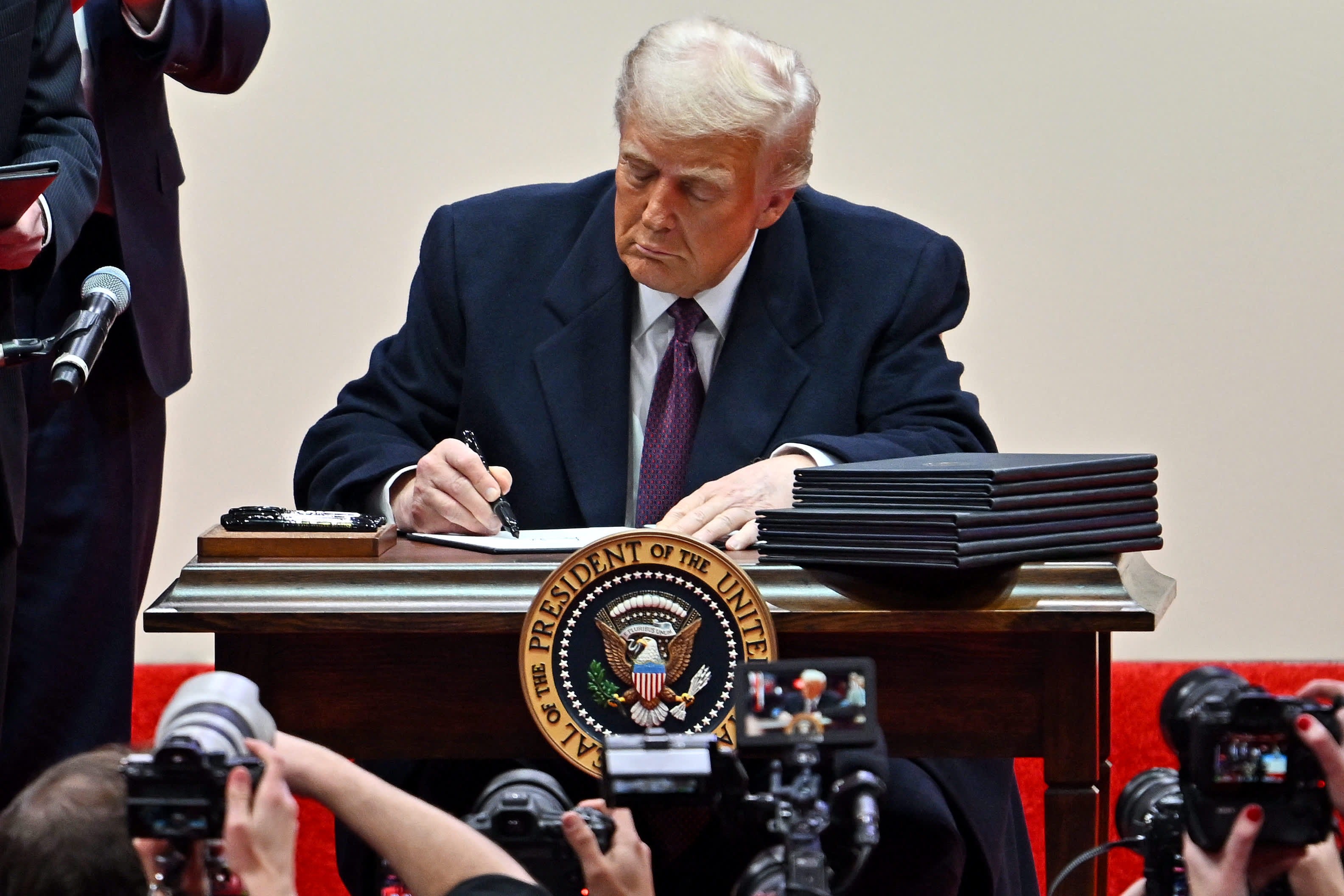Dramatic depreciation of electric vehicles has created a 'car leasing crisis' that threatens to push monthly costs higher for customers and force them to run older battery models with shorter ranges, experts warn.
A 'fundamental mismatch between market forces for new and used EVs' is said to be at the heart of the issue, as massive demand for new battery car leases is not being met with a equally strong appetite for second-hand electric models.
Leasing firms are said to be hemorrhaging thousands of pounds each time they push an out-of-contract EV into the second-hand market because of plunging electric car residual values resulting from to a lack of public appetite.
To mitigate losses, lease companies are instead extending contracts and encouraging re-leasing of used EVs.
For motorists using popular tax-advantaged salary sacrifice schemes, the value of the vehicle 'perk' is diminished, as they could be forced to drive older vehicles instead of upgrading to newer EVs with the latest technology that can travel longer distance on a single charge.
For car makers, extensions of contracts and re-leasing of electric cars will become another hurdle to achieving Government-enforced aggressive EV sales targets set out in the Zero Emission Vehicle Mandate (ZEV) as fewer new models will be snapped up by this sector.
Experts says there is 'no end in sight for the EV residual values crisis' that's forcing leasing companies to 'investigate ways to best postpone exposure to the used market'.

Auto Data Solutions (ADS) - a specialist automotive consultancy firm - says that a 'multiple of factors have been converging' to create the crisis, which are all linked to low demand for used EVs.
It says second-hand electric car prices - despite suffering depreciation in the region of 50 per cent after just one year - are still too steep for the majority of buyers.
Auto Trader's November Retail Price Index shows that the average second-hand EV was priced at £26,390, almost double the price of a petrol car (£14,710).
ADS says most used car buyers still prefer cheaper petrol and diesel models, especially while concerns remains about the infancy of battery technology and how quickly EVs can becoming outdated as newer models enter the market.
And there are are also major concerns about predicted future values of EVs, which are 'falling short of current forecasts'.
Some EVs, originally forecast to retain over 40 per cent of their list price after three years, are achieving sale values in the 20 per cent range, it suggested.
On a car with a new list price of £40,000, that's an unexpected loss of over £7,000. This problem has already cost leasing companies 'hundreds of millions of pounds,' the report says.
'Steep discounts on new EVs are driving down used EV values even further,' it added while also pointing to the cost-of-living crisis and consumer uncertainty 'exacerbating the situation'.
It says this is 'leaving the industry to explore ways to generate as much revenue as possible from existing assets through lease extensions or offering used EV leasing as a service'.

What impact will it have on drivers and car makers?
The result of low demand for used EVs could leave customers facing difficulties securing lease deals on new electric cars as companies push to re-lease existing models.
Providers are also likely to increase monthly rates for customers to cover shortfalls and avoid future losses when disposing of ex-lease vehicles.
Manufacturers will also be affected by any reduction in demand for new products due to lease extensions.
Historically, car makers used the daily rental sector to offload excess vehicles during periods of weaker demand, but EVs are widely seen as unsuitable for that role.
'This is not about anti-EV sentiment and it's clear that the leasing sector is fully behind the transition to zero-carbon driving,' says Amanda Morgan, commercial director and leasing sector lead at ADS.
She added that the 'pace of EV success' for lease firms due to the popularity of salary sacrifice and lease deals in general has created this 'imbalance between the demands of the new and used car markets'.
As such, she says a number of companies are already re-leasing ex-contract EVs.
Amanda warns: 'We are seeing recent analysis conducted across the fleet and finance sectors which indicates no end in sight for the EV residual values crisis and companies investigating ways to best postpone exposure to the used market.
'That means extending existing contracts wherever possible, to maintain revenue, and also re-leasing ex-contract vehicles rather than send them back into the market.'

Higher than forecast depreciation for EVs is also stinging finance providers, which are already facing billions of pounds in compensation payouts linked to the sector's mis-selling scandal.
Around eight in ten new cars acquired by retail customers is via finance rather than outright purchases with cash. And PCP - personal contract purchases - is by far the most common form of finance.
PCP monthly costs - usually over a three-year period - are determined by the predicted value of the car at the end of the contract.
A deposit amount paid at the start of the contract and the estimated residual value is subtracted from the vehicle's price to calculate the remaining cost which is spread across monthly installments.
This means customers will pay the value of depreciation over the contracted period.
Once the contract is nearing its end, they can choose to keep the electric car by paying the pre-agreed residual value - this is called the 'balloon payment'.
However, with EV values falling faster than forecast, this will almost always be more than the car's existing market value, which is why most finance users decide to hand the car back and start a new contract on another vehicle.
As such, finance providers are left with large volumes of used EVs at a loss.
When these electric vehicles are then released into an already saturated second-hand market at a time when demand is low, it contributes to anchoring values.













